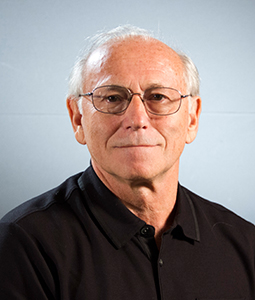
Chemistry faculty member Professor Greg Kharas has been at DePaul for 25 years, and recently sat down to reflect on his experiences. His reflection is really insightful, but rather than write it all here, we are just going to give some highlights. If you want to hear more, you should sit down to a cup of coffee with Dr. Kharas, which is always enlightening. Below are some paraphrased excerpts from his thoughts.
“Driven by passion for research and education I was fortunate to join in 1992 faculty of DePaul University which encouraged and fully supported my innovative approach of introducing a genuine research experience into a classroom setting. Since that time, undergraduate students enrolled in 10 weeks organic chemistry laboratory course (CHE 235) are involved in individual research projects. In this guided discovery research project each student prepares and characterizes a novel organic compound and makes a polymer from it. Students are very excited to apply knowledge of the reactions they learned in the organic chemistry lecture to practical applications since polymers are a main constituent of our bodies (e.g. polynucleic acids and proteins), our food (starch and protein), our clothes (e.g. polyester and nylon), our houses (wood cellulose, paints, and adhesives). Every year the course is developed where students are guided to follow the common steps of any scientific inquiry: literature search and review, experimentak data collection and analysis of data, and discussion of results.
These projects promoting discovery based learning are developed every year to integrate students learning experiences with my research interests – which are the design, syntheses, and characterization of novel structures that could serve as a springboard for the further development of novel materials with new properties and applications. Making a novel compound and polymer, not described in the existing chemical literature, is an exciting project for students, and surprisingly, after all these years, still thrilling for me. When I walk from student to student to congratulate them on their discovery I feel very fortunate to be able to share these moments.
The major focus of my educational and research activities always been the students, specifically offering them unique opportunities of learning and hands-on experiences. The discussions with students who participated in the discovery projects in more than 20 years led to the following observations: (1) all students respond enthusiastically to the projects and most students are highly motivated (some students want to continue these projects the course is over); (2) many students indicated that the project boosted their confidence in experimental organic chemistry techniques and methods of analysis; (3) they were proud that they were able to prepare new compounds and polymers, that heretofore had not been described in the chemical literature; (4) all students produced results that eventually led to articles and/or presentations; (5) they were very excited about the opportunity to have their names appear on a scientific publication reporting their results which, in the long run, enhances their career opportunities. Over the years for many undergraduates it is their first exposure to research activities – it often sparks interest to continue this research to bring it to publication thus engaging students in scholarly and creative work beyond the classroom.
The results of the projects obtained by DePaul undergraduate students in the sophomore organic chemistry lab are then expanded in my research lab. This involves double-checking the results of the projects, running additional tests by undergraduate volunteer and graduate students, presenting the data at conferences, as well as publishing the data in refereed journals with the undergraduate students as coauthors. Discovery of these compounds and polymers were presented almost every year since 1993 at the American Chemical Society (ACS) national meetings in Polymer Chemistry or Polymeric Materials Science and Engineering Divisions by undergraduate and graduate students. Whenever ACS Meetings were in Chicago then almost the whole class was presenting (for example in fall of 1995 and 2001).
More than a thousand compounds and polymers have been reported from this work and over a thousand DePaul students are listed as coauthors on 115 refereed publications since 1995, with a record of 15 papers published in the Journal of Macromolecular Science in one year (2016) with 136 undergraduate and 11 graduate DePaul students!”